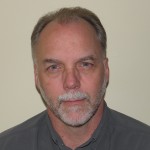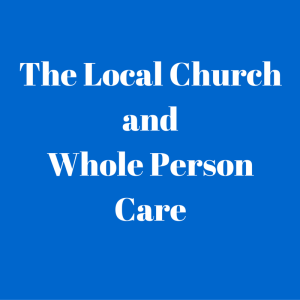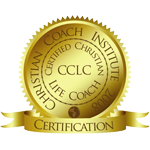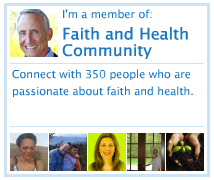 This guest blog post was written by Dr Mike Soderling. Dr Soderling is Director for the Centre for Health in Mission(HIM) and co-Catalyst for the Lausanne Health in Mission Issue Network. His passion is seeing the global Church embrace Her full calling to ministries of health, healing and wholeness. The Centre for HIM is the umbrella organization for the Christian Journal for Global Health, the Best Practices in Global Health Missions group, the developing Fountain School for Community and Global Health and the Outlook on the Christian Global Health Movement project. He can be reached at [email protected].
This guest blog post was written by Dr Mike Soderling. Dr Soderling is Director for the Centre for Health in Mission(HIM) and co-Catalyst for the Lausanne Health in Mission Issue Network. His passion is seeing the global Church embrace Her full calling to ministries of health, healing and wholeness. The Centre for HIM is the umbrella organization for the Christian Journal for Global Health, the Best Practices in Global Health Missions group, the developing Fountain School for Community and Global Health and the Outlook on the Christian Global Health Movement project. He can be reached at [email protected].
—————————————————-
 I believe that the local church should consider itself as the most important center for health, healing, and whole person care within our communities. This blog post explains my rationale and some key considerations.
I believe that the local church should consider itself as the most important center for health, healing, and whole person care within our communities. This blog post explains my rationale and some key considerations.
When I began my career in private OB/GYN practice in 1991 there was already what many termed a “health care crisis” in the US. From exploding costs to a shortage of healthcare professionals there seems to be a never ending focus on the shortcomings of healthcare provision in this country. We seem to be moving inexorably toward a single payer system along the lines of what exists in Europe and Canada even though the severe shortcomings of those systems are becoming more manifest all the time. On a global scale the discussion focuses frequently on “health” as a human right, though what constitutes health is rarely discussed. Other than perhaps to refer people to the World Health Organization definition of health as “a state of complete physical, mental and social well-being and not merely the absence of disease or infirmity.” While I have no problem agreeing that access to affordable, culturally appropriate, sustainable and high quality healthCARE is a human right the idea that health itself is a human right makes no sense. And the truth of the matter is that what we are mostly talking about is access to quality and affordable disease management services since this is largely what our healthcare industry is geared to do. But I’ll not take us down the path of that discussion.
I want to consider this challenge from the perspective of the Christian church. From this perspective I do believe we should be focusing on the issue of HEALTHcare and not simply disease management. At this point many will likely be asking, “What does the church have to do with healthcare?” Even though ministries of health and healing (central to Jesus’ 3 year ministry) services have historically been integral to the ministry of the church (the Church essentially invented the modern hospital system) it has now become almost exclusively the work of secular and business minded organizations. Some exceptions exist though they are fewer and fewer. (The Roman Catholic and Adventist healthcare systems come to mind.)
Since the majority of Western Christians function from a dualistic and reductionist worldview there is typically a limited knowledge of a truly biblical understanding of health and thus a lack of wisdom with regards to the church’s role in ministries of health. (and I would add healing and wholeness) Time and space are not sufficient in this posting to delve into the roots of this dualism/reductionism so I will focus on what is possible now and for the future.
What are the challenges facing the global Church with regards to discovering its full calling to ministries of health, healing and wholeness? First and foremost is our shallow understanding of what health is from a biblical perspective. We are burdened with blinders in this regard because when health comes up in our conversations we immediately think of things related to our physical and perhaps mental health. It conjures images of hospitals, clinics, MRI machines and all the latest high tech solutions to our physical and mental health problems. Our healthcare technicians (doctors, nurses, etc.) are trained to function within this system and for the most part are greatly hindered from really addressing the true health needs of their patients. So what is a more biblically centered understanding of health?
My longtime friend and mentor, Dr Dan Fountain, states, “Health cannot be defined. It is not simply an object for analysis. To render it such is to think secularly about health. Health is life, a gift we receive, an endowment we are to develop, and a journey we are to pursue. We can observe and analyze much along the way, we can manipulate and improve certain aspects of health and life, but we can never comprehend the whole… there remains a mystery.” (in “Health, the Bible and the Church” 1998 BGC publication – available upon request)
Dr John Wilkinson, a British physician and pastor writes in “The Bible and Healing: A Medical and Theological Commentary” that “…any adequate definition of human health and wholeness can only be in terms of the life and perfection of God who created human beings for fellowship with himself and whose will it is that they should share and enjoy the same life and perfection as his own.” Wilkinson goes on to describe health as life, blessedness, holiness and maturity. Surely a very different set of descriptions for what health is or should mean to the Christ follower.
Dr E. Anthony Allen, also a trained clergyman, states “Properly considered, the meaning of the term “health” leads us, therefore, to a new semantic, calling for the terms “wholeness” and “healing.” Wholeness comes not by “treating” in the narrow sense of the word, which means acting upon” organisms as we have learned to as health professionals. Rather, health or wholeness comes by healing.” (in “Caring for the Whole Person”)
We at the Centre for Health in Mission have a comprehensive outline that more fully explains our thinking of a biblical perspective on health and can be accessed at this link. A final means by which we can understand health from God’s perspective can be achieved by a deep study of the Hebrew word Shalom. The reader is strongly encouraged to undertake such a study, preferably in a small group setting.
If, then, we were able to convince the global Church that this is indeed a more accurate understanding of health, what does that then mean for how she should be involved in ministries of health, healing and wholeness? This discussion could go in many directions but in this short blog post I will explore just one. But it is the one I believe could have the most impact in the world. It is the idea that the local church should consider itself as the most important center for health, healing and wholeness wherever she exists. It is safe to say that the foundation for true health rests on the foundation of healthy relationships. The most important relationship for man is that which can exist between him and the Creator God through His Son Jesus Christ. Outside this relationship humans are and will remain in a broken state in desperate need of healing. (The Greek word sozo is translated both as salvation and healing.) This, then, is the most essential role and first step of the local church with regards to leading broken people into a life of true health and it is perhaps what we have been the best at doing through the centuries.
But is the local church being called into something more? I often ask pastors how they interpret James 5:13-16.
Is anyone among you suffering? He should keep on praying. Is anyone cheerful? He should keep reciting psalms. Is anyone among you sick? He should call for the elders of the church, and they should pray for him and anoint him with oil in the name of the Lord. And the prayer offered in faith will save the person who is sick. The Lord will raise him up, and if he has committed any sins, he will be forgiven. Therefore, make it your habit to confess your sins to one another and to pray for one another, so that you may be healed. The prayer of a righteous person is powerful and effective. James 5:13-16
Is there an application of this passage for the church of the 21st century? I would of course respond YES this is still a relevant passage for the church. To me this passage essentially says our churches and our church leadership is where our members should turn first if they are feeling dis-eased. I am not advocating that at times of obvious emergency (compound fracture for example) we are to call our elders first so they can come and pray for the afflicted before rushing off to the ER. But, considering that most cases presenting to the emergency room physician and to urgent care centers are the result of bad lifestyle choices, we would do well to start our journey of discovering the roots of our dis-ease by calling on the leaders of our churches. They can then help discover/discern whether the sick person is suffering from the consequences of sin and if so pray and then help lead the person through a process of inner healing which may be sufficient for resolving the problem. We need a balanced approach to caring for the hurting and suffering in our churches and communities. Prayer will help and at times may facilitate a miraculous healing, (though I believe these are rare) but my experience has been that the Lord usually chooses to cure our illnesses through the means He has provided – medicines, surgical procedures, etc. The oil referred to in the passage in James also referred to oil used for medical purposes.
I will end this discussion by advocating that churches should have healthcare teams that can assist the leadership in discerning the roots of people’s illnesses. I see so many churches which seem to have a paid pastor for most any type of ministry you can think of but how many have skilled mental health professionals, primary healthcare professionals or social workers on their staff? The root causes of illness in our society are very complex and require this team approach to caring for people. I believe the local church is the greatest hope for dealing with the massive healthcare crisis we have in this country and around the world. Can you imagine the impact that whole person care, church-based health centers could have if even just one such church existed in each community? They could serve as the most effective primary health care centers in the world. And the opportunity for bringing non-believers into the kingdom would be unmatched by any other means the church can imagine. It is the way Jesus and His disciples did it. Weren’t we assured by our Savior that we would do even greater things than He? And this is to say nothing about what impact this church model of health care could have on reaching the remaining unreached people groups in the world!
Where are the church leaders who are willing to embrace this calling that God has put on His bride? It will be tough going since seminaries teach nothing about this to their students and healthcare education institutions are certainly not typically teaching their students these concepts. We need a few churches whose leaders are willing to take the risk of beginning a journey down this road to experiment with what it might look like for this to become a reality. Leaders who are willing to plant churches whose vision is to help people live lives of health and wholeness in Christ.
Are you such a leader who is willing to engage in this new paradigm? Do you know of one?
——————————————
My Comments
Mike is clearly very passionate about this topic! I can imagine a scenario where a local church would team up with a health system or hospital and collaborate on such an initiative. The hospital could partially or totally fund the presence of a mid-level health care provider like a Nurse Practitioner or a Physician Assistant who is walking with Jesus and is Spirit-led. Part of this team might be a Faith Community Nurse. These practitioners could be part of a triage team that screens individuals. Acute and complicated medical issues could be referred to the local hospital. Physical conditions that might be rooted in spiritual issues could be referred to a healing team within the church. As non church goers in the community learned that their local church was caring for the whole person heath needs of people this would attract many of them to the church where the church staff could be Jesus to them. This would result in many people experiencing God and entering into a relationship with Jesus.
If you are part of a church that provides whole person care as described above, we’d love to hear from you. If you’re interested in developing such a model of whole person care at your church, we’d also encourage you to comment in the space provided in this post.
Related Resources
Blog Posts About Church Health
How the Church Health Center in Memphis, TN is providing Whole Person Care to the Memphis Community








This model is working in two communities I know about- Memphis, TN (Methodist-Le Bonheur) and Gwinnett County, Georgia (Gwinnett Medical Center’s Faith Community Network). Both these models connect the churches with hospitals to provide whole person care and reduce hospital readmissions. For more information on the one in my local area, contact [email protected] (Cheryl Wunsch, Manager, Faith Community Nursing Department). Some of the churches in the network have Faith Community Nurses, and others have Health Care Liasons. As a Faith Community Nurse working in a corporate setting, I believe we are on the verge of a great resurgence of health, healing and wholeness being returned to its starting point, which is the Christian Church (or in businesses that operate on Biblical principles).
Thanks Vicki! Faith Community Nurses can play a huge role in this model that Mike has written about.